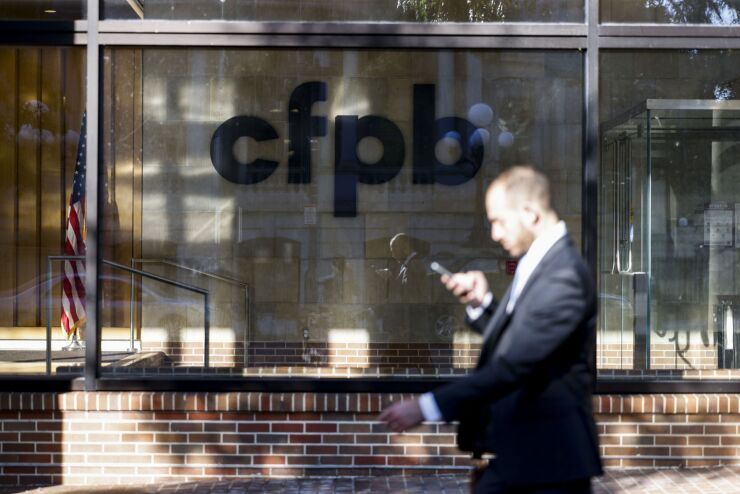
With
On Tuesday, the CFPB claimed the credit card industry engaged in "
The bureau's response comes just days after the Judicial Conference of the United States, a policymaking body for the federal courts,
The CFPB said in its brief that the Fort Worth Chamber of Commerce lacked standing in Texas and claimed that Synchrony Bank — a $106 billion-asset bank based in Stamford, Connecticut, and chartered in Utah — had only recently joined the group in order to get the lawsuit filed in Texas, a district considered favorable to the banking industry. The CFPB urged the judge to dismiss the case for improper venue or, alternatively, to move the case to Washington D.C.
"Far-flung entities cannot just pay membership fees to an association in their venue of choice to gain access to that venue," the CFPB said in its motion. "Only one Plaintiff resides in this District, the Fort Worth Chamber of Commerce. But the Fort Worth Chamber — suing on behalf of its members, only one of whom is named, Synchrony Bank of Draper, Utah (apparently, a recent addition to its roster) — lacks standing and, therefore, cannot provide the foundation for venue in this Court. The other Plaintiffs are associations headquartered in Washington, D.C., or other parts of Texas. And those other Texas groups identify zero members with standing."
The Fort Worth Chamber of Commerce did not respond to repeated inquiries. A spokeswoman for Synchrony declined to comment.
The CFPB's $8 late fee rule issued earlier this month
"Put simply, this case — about a consumer protection rule issued in Washington and applicable to a small number of large card issuers, not one of which appears to be based in this District — does not have an adequate connection to this District for venue to be proper," the CFPB motion said.
In addition to the Fort Worth chamber, the five other trade groups that sued the CFPB are the U.S. Chamber of Commerce, the American Bankers Association, the Consumer Bankers Association, the Longview Chamber of Commerce and the Texas Association of Business. The U.S. Chamber of Commerce is expected to file a reply brief later Thursday. The judge could rule within a week, according to some experts.
If the judge grants the trade groups an injunction, then the late fee rule will be stayed and every bank and credit card issuer that are members of the ABA, CBA and the other trade groups can continue charging credit card late fees of $32 for the first missed payment and $41 for subsequent late payments.
Judge O'Connor could invalidate the CFPB's $8 credit card late fee rule by claiming that the U.S. Court of Appeals for the 5th Circuit
The judge also could stay the rule until
A ruling against the CFPB would cut into
A ruling in favor of the CFPB would mean the $8 late fee rule may go into effect within about two months. The rule has not yet been published in the Federal Register but would go into effect 60 days after its publication.
The CFPB has very broad statutory authority over credit card issuers. In 2009, Congress passed the Credit Card Accountability Responsibility and Disclosure Act, which banned credit card companies from charging excessive penalty fees. The authority for administering the CARD Act was transferred from the Federal Reserve Board to the CFPB.






